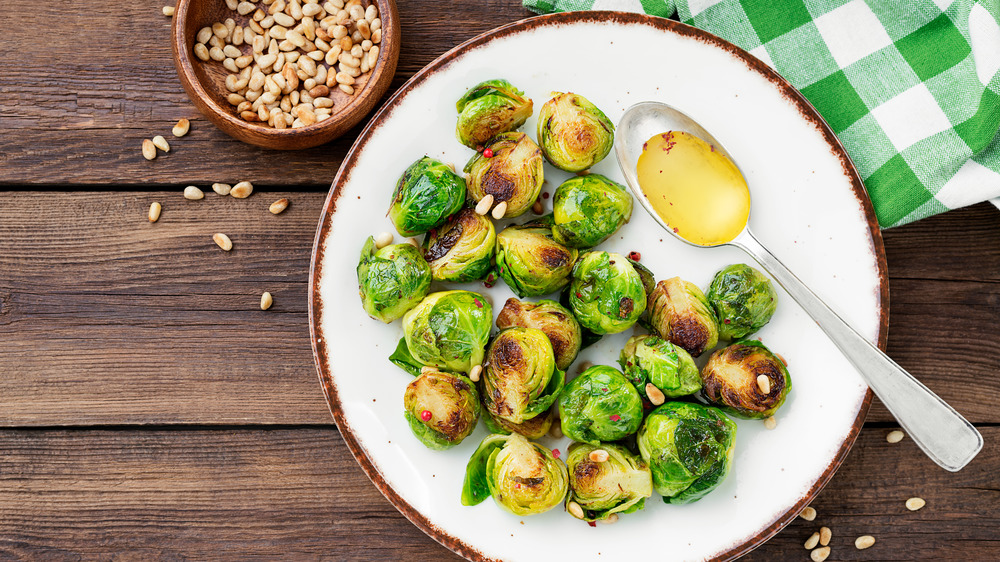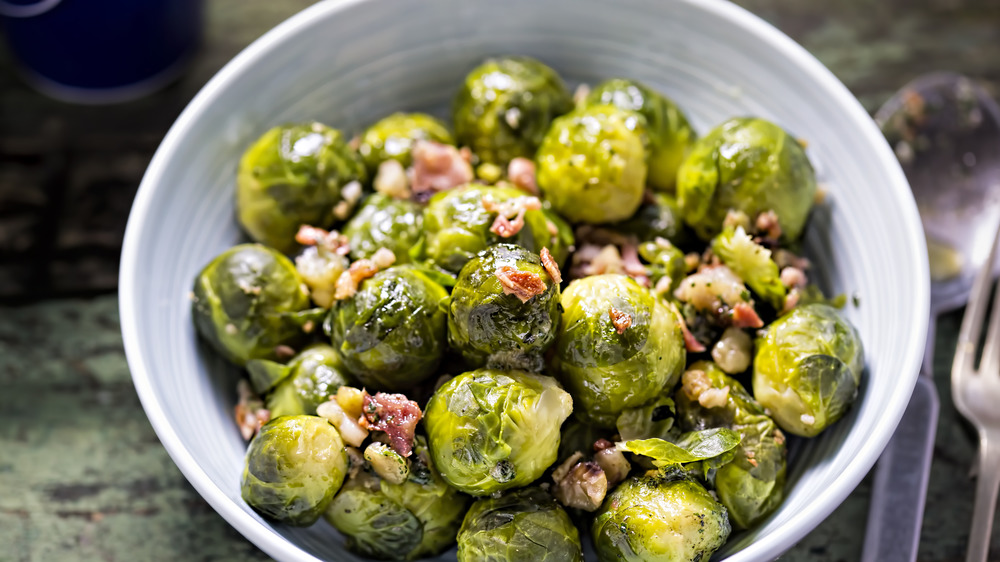Why You Should Start Eating More Brussels Sprouts
Love them or hate them, Brussels sprouts are a nutritious vegetable that can greatly benefit your overall health. Named after the city in Belgium, Brussels sprouts are part of the Brassicaceae, or cruciferous, family of vegetables, which also includes cabbage, broccoli, cauliflower, kale, collard greens, and bok choy (via Health).
Relatively small in size, Brussels sprouts almost look like baby cabbages with tightly packed leaves. They are typically sold either fresh or frozen and can be found in most grocery stores and farmers markets. Brussels sprouts have a bold, nutty flavor and can be roasted, boiled, sautéed, or baked (via Healthline). They can either be eaten alone or added to a number of dishes, including soups, salads, omelets, pasta dishes, frittatas, and even added to a stir-fry. While many people choose to prepare roasted or baked Brussels sprouts with bacon bits or butter, simply adding some olive oil and salt and pepper is a tasty (and healthier) alternative.
The health benefits of Brussels sprouts
Brussels sprouts are rich in vitamins and antioxidants and have been linked to a number of health benefits. First and foremost, Brussels sprouts can promote healing (via Verywell Fit). Brussels sprouts are also a good source of vitamin C and vitamin K, which help your blood clot and repair tissue damage. Vitamin K can also support bone growth and may protect against osteoporosis.
Additionally, Brussels sprouts can help with blood sugar regulation. Studies have found that eating more cruciferous vegetables, like Brussels sprouts, can decrease your risk of diabetes. This is largely because Brussels sprouts are high in fiber and antioxidants. Fiber can help regulate blood sugar levels, while the antioxidant alpha-lipoic acid can improve insulin sensitivity.
Brussels sprouts may also reduce the risk of certain types of cancer. One study found that Brussels sprouts could protect against carcinogens and prevent oxidative damage to cells. Antioxidants may also play a role in decreasing the risk of cancer since they can fight off disease-carrying free radicals.


